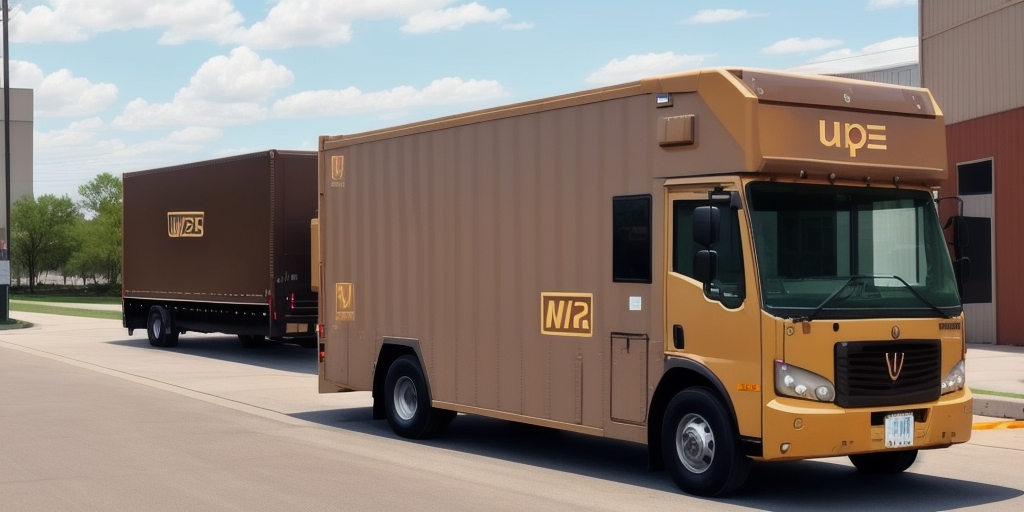Discover the Best Shipping Deals for Small Businesses
As a small business owner, securing the best shipping deals can significantly impact your profitability. Shipping costs can accumulate quickly, particularly with high volumes of products. Therefore, it is crucial to identify a reliable and cost-effective shipping provider that aligns with your business requirements. This article delves into the key considerations for selecting a shipping provider and offers practical tips to reduce shipping expenses.
Why Finding the Best Shipping Deals Matters for Small Businesses
Shipping expenses often represent a substantial portion of operational costs for small businesses. Variations in shipping provider rates can lead to significant differences in total shipping costs. Selecting an inappropriate provider could result in overspending and diminished profit margins. Furthermore, with the exponential growth of e-commerce, customers increasingly anticipate fast and affordable shipping. High shipping costs may deter potential customers, impacting your sales and customer retention.
To secure the best shipping deals, consider negotiating with your current providers. Many shipping companies are open to creating customized pricing structures for small businesses. Alternatively, leveraging a shipping aggregator enables you to compare rates from multiple providers, ensuring you select the most advantageous option for each shipment.
Reliability is another critical factor when choosing a shipping provider. Persistent delays or lost shipments can tarnish your business reputation and lead to dissatisfied customers. Opt for providers with a proven track record for on-time delivery and robust customer service. Additionally, providers offering package tracking capabilities enhance transparency, allowing both you and your customers to monitor shipment progress in real-time.
Key Factors in Selecting a Shipping Provider
Assessing Your Shipping Needs
Your choice of shipping provider should align with the nature of your products, shipping volume, and delivery destinations. Some providers excel in managing smaller shipments, while others are better suited for handling high-volume deliveries. Additionally, consider the geographic regions you serve and the expected delivery timelines to ensure the provider can meet your logistical needs.
Cost vs. Quality
While it's essential to seek affordable shipping options, it's equally important not to compromise on service quality. Opt for providers that offer a balance between cost and reliability. Evaluating total cost of ownership, including potential hidden fees, ensures that you're making an informed decision that supports your business's financial health.
Customer Service and Support
A shipping provider with responsive and supportive customer service can be invaluable, especially when issues arise. Effective communication channels and a dedicated support team facilitate quick resolution of any shipping-related problems, minimizing disruption to your business operations.
Tracking and Insurance Options
Providers that offer advanced tracking systems and insurance options provide added security for your shipments. Tracking capabilities not only enhance customer satisfaction by providing transparency but also aid in mitigating risks associated with lost or damaged packages. Comprehensive insurance coverage safeguards your business against potential financial losses.
Strategies to Save on Shipping Costs
Utilize Shipping Calculators and Aggregators
Employing shipping calculators allows you to compare rates across different providers efficiently. Shipping aggregators streamline this process further by presenting comparative pricing and service options, enabling you to select the most cost-effective solution for each shipment. Resources like PriceShipping and Shippo offer platforms to compare rates from major carriers.
Negotiate with Carriers
For businesses with substantial shipping volumes, negotiating rates with carriers can lead to significant savings. Carriers may offer volume-based discounts or customized pricing plans tailored to your specific needs, especially if you establish a long-term partnership. To prepare, research current market rates and present your business's shipping volume and growth projections to support your negotiation.
Choose Regional Carriers
Regional carriers often provide competitive rates within specific geographic areas. Leveraging regional carriers for localized deliveries can result in cost savings compared to utilizing larger national carriers, particularly for businesses with concentrated customer bases. Examples of regional carriers include OnTrac in the Western United States and Canada Post in Canada.
Implement Eco-Friendly Packaging
Adopting eco-friendly packaging solutions not only appeals to environmentally conscious consumers but can also reduce shipping costs. Lightweight and sustainable materials decrease overall package weight, leading to lower shipping fees without compromising product safety.
Offer Free Shipping Thresholds
Incentivizing larger orders by offering free shipping on purchases exceeding a certain amount can offset shipping expenses. This strategy encourages higher average order values while distributing shipping costs more effectively.
Utilizing Third-Party Logistics Providers (3PL)
Third-party logistics providers (3PL) manage the entire shipping process, encompassing warehousing, transportation, and fulfillment. Outsourcing logistics to a 3PL can free up time and resources, allowing you to focus on core business activities such as product development and marketing.
Advantages of 3PL Providers
- Expertise: 3PLs possess in-depth industry knowledge and logistical expertise, enabling them to optimize your shipping processes effectively.
- Scalability: As your business grows, 3PL providers can scale their services to accommodate increased shipping volumes without compromising quality.
- Technology Integration: Many 3PLs offer advanced shipping software and tracking systems, enhancing operational efficiency and customer satisfaction.
Selecting the Right 3PL Partner
When choosing a 3PL provider, assess their service offerings, technology capabilities, and track record for reliability. Ensure that their solutions align with your business needs and that they can support your growth objectives. Resources such as the 3PL Central can help you evaluate potential partners.
Understanding Shipping Insurance and Liability
Shipping insurance and liability policies are paramount in protecting your business against potential losses from damaged or lost packages. While most shipping providers offer basic insurance coverage, it is often insufficient for high-value items. Investing in additional insurance ensures comprehensive protection and mitigates financial risk.
Choosing the Right Insurance Coverage
Select insurance plans that correspond to the value and nature of your products. High-value goods or fragile items may require specialized coverage to ensure adequate protection during transit. Consult reputable insurance providers like Insureon or Hiscox for tailored coverage options.
Maintaining Shipment Records
Keeping meticulous records of all shipments, including tracking numbers and delivery confirmations, is essential for supporting insurance claims. Accurate documentation facilitates the claims process and ensures timely resolution in the event of an incident.
Overcoming Common Shipping Challenges
Managing Shipping Delays
Shipping delays can disrupt your business operations and affect customer satisfaction. Partnering with reliable shipping providers and setting realistic delivery expectations can help mitigate the impact of delays. Additionally, proactive communication with customers regarding potential delays fosters trust and transparency.
Preventing Lost or Damaged Packages
Ensuring the use of proper packaging materials and techniques minimizes the risk of damage during transit. Implementing stringent quality control measures and choosing reputable carriers further reduces the likelihood of lost or damaged packages.
Handling International Shipping and Customs Regulations
International shipping introduces complexities such as varied customs regulations and documentation requirements. Familiarize yourself with the import and export regulations of target countries and ensure compliance to prevent shipping holds or additional fees. Partnering with a 3PL experienced in international logistics can streamline this process and alleviate associated challenges.
Future Trends in Shipping for Small Businesses
The shipping industry is rapidly evolving, with several emerging trends and innovations poised to shape the future of small business logistics. Staying informed about these developments enables businesses to adapt and maintain a competitive edge.
Automation and Technology Integration
Advanced technologies, including automation and artificial intelligence, are enhancing the efficiency of shipping operations. Automated sorting systems, predictive analytics, and optimized route planning contribute to faster and more reliable deliveries.
Drones and Autonomous Delivery
The utilization of drones and autonomous vehicles for deliveries is gaining traction, particularly for last-mile logistics. These technologies promise reduced delivery times and operational costs, although widespread adoption may still be several years away.
Sustainable Shipping Practices
Environmental sustainability is becoming increasingly important in the shipping sector. Businesses are adopting eco-friendly practices such as carbon-neutral shipping options, recyclable packaging materials, and energy-efficient transportation modes to minimize their ecological footprint.
In conclusion, identifying and leveraging the best shipping deals is integral to the success of small businesses. By carefully selecting shipping providers, implementing cost-saving strategies, understanding insurance and liability, and staying abreast of industry trends, you can optimize your shipping operations for enhanced efficiency and profitability.








